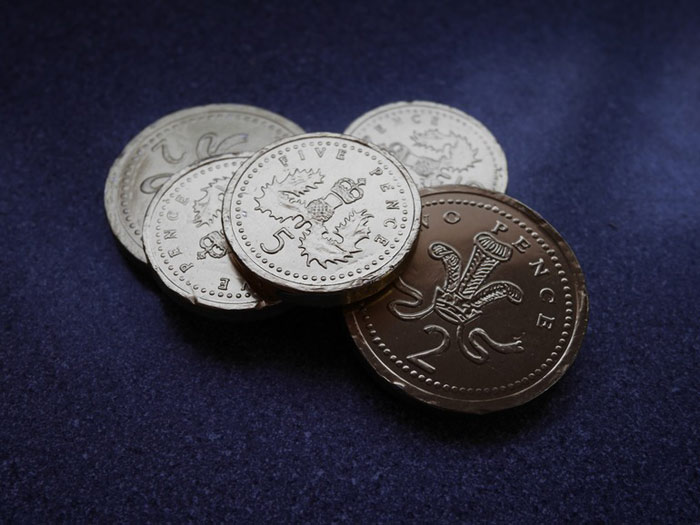It is known that all is fair in love and war. Therefore, shops and retailers employ the power of marketing and the magic of numbers to get all the money out of your wallet. And if so, it is necessary to resist this influence.

Moreover, your pocket is pressured by external factors, which again suggests that it is time to take note of some useful psychological tricks that will help to spend less during the holidays or when planning a shopping trip.
1. Use the rule of 10 seconds
Every time you are in a store, take a potential purchase in hand and hold it for 10 seconds. During this time, ask yourself whether this thing is needed or not and whether you can spend the money on something more important? Almost always, you will return the item to its place and get away with a proud feeling that your savings are safe.
2. Take “a stranger test”
Another quick and easy trick is to imagine a stranger in front of you, holding the purchase in one hand and its cash equivalent in the other hand. What will you choose? If you choose the money, you do not need the thing, and it is better to give it up.
3. Set aside non-essential purchases for later
There are cases, when being slow turns into an advantage. For example, when it comes to buying doubtful things. In this case, it is better not to rush and weigh the pros and cons, or simply look for a better price. This strategy is great for online shopping.
You must have had situations when you could not decide which shirt will emphasize your style better. Next time, you should not torment yourself with a choice like this: send all the options in a virtual shopping cart and forget about them for as long as possible. Hours, days and weeks will be your perfect judge. Some of the shirts may simply disappear from the market, some seller may send you a discount coupon or some product may go on sale.
4. Keep only the cash in your pocket
You must have already heard that people spend much more money, if they use a credit card.
Studies confirm that people part with ghostly virtual bills much easier than with real paper money, failing to control their expenses.
Therefore, if you do not want to waste your finances, shop only with paper money. Leave plastic cards at home, having withdrawn the exact amount of money you are willing to spend in advance. Thus you will protect yourself from the financial turmoil in future.
5. Take only new banknotes with you
An addition to the previous advice: if you go shopping with cash, take only fresh and crispy notes. Studies show that people prefer new banknotes to old, battered and dirty ones and try to get rid of the latter. You are sure to have noticed it yourself.
6. Wrap a card in a piece of paper with a reminder
Perhaps you do not like to stand in a line for money at an ATM. Then wrap your plastic card in a piece of paper and put a sticker, especially if you are prone to impulsive purchases.
Draw a motivational message to yourself on this paper. For example, this could be your goal of long-term savings or something sobering, such as “What are you going to do the next day, poor fellow?”
This physical and psychological barrier will make you think one more time, so you will get a chance to hit the brakes.
7. Convert your money into hours
Suppose you earn $500 a month, which is a little more than $3 per hour. Next time you decide to buy something, think about how many hours of your time the purchase costs. It is very likely that you will not want a cup of coffee that costs an hour of your labor or the latest model of a phone as expensive as 250 hours of your work.
8. Do not waste small change
An abundance of paper money makes you wallet swell. Coins roll from corner to corner of your purse. However, it is not the reason to spend pocket money only in order to quickly get rid of it.
A piggy bank is what you need. Your private home bank will gladly accept any change and will please you with its contents in a month or two.
9. Shop alone
If possible, go shopping alone, unless you plan to share the cost with your companion, of course. Studies have shown that the more people you take with you, the greater the likelihood of spontaneous purchases becomes.
You do not need a week-willed companion, whose requests you will find hard to resist. You do not need a person who will unquestioningly approve all the excess purchases in your cart.
10. Limit the time and place of shopping
Internalize one simple rule: the more time you have for shopping, the more money you will spend. Reduce the frequency of trips and limit the number of department stores that you plan to visit.
Remember: the time spent is cutting into your brain and forces you to make a purchase only in order to justify the lost hours.
Before going on holiday shopping, make a list of anticipated purchases and identify the stores where they can be made. If you have already noticed that marketplaces quietly burn your time, do not be lazy to use an alarm clock that will tell you when it’s time to stop.
11. Develop a tax system for yourself
Follow the example of a state which gets a monthly income tax from your salary. Set a rule: 10% of your income should be deposited in the reserve fund. In contrast to financing intangible state needs, several months of voluntary taxation will serve you good and turn into a decent amount of money that can be spent on additional training, a long-awaited journey or gifts.
12. Do not hesitate to say “no”
Many people take “no” in a negative way when it comes to their own purchases: they hate the feeling forced saving, constant control of the budget and the loss of opportunities. How to get rid of this feeling? Remember: giving up something fleeting and unnecessary right now, you are saying “yes” to something really important in the future.
The more tangible benefit of such a refusal is that we should not blindly agree to the terms of sellers because the cost of their goods is often unaffordable. It often happens that the cost is considerably overstated. Try not to purchase the product and turn to the exit. The price may be reduced considerably, if you demonstrate coolness and perseverance.










